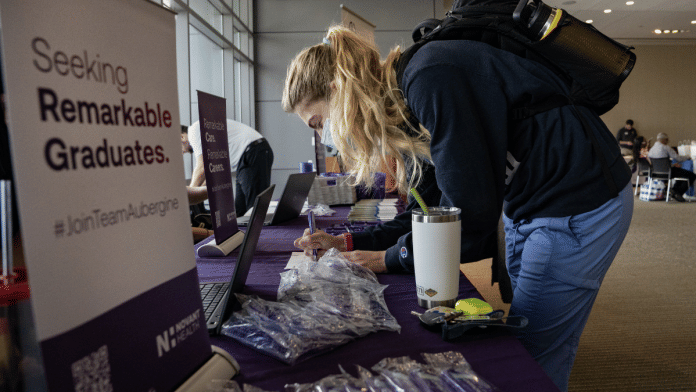College graduates have historically found jobs more quickly than people with only a high school degree, but that advantage is becoming a thing of the past, according to new research from the Federal Reserve Bank of Cleveland.
“Recently, the job-finding rate for young college-educated workers has declined to be roughly in line with the rate for young high-school-educated workers, indicating that a long period of relatively easier job-finding prospects for college grads has ended,” Cleveland Fed researchers Alexander Cline and Barış Kaymak said in a blog post published Monday.
The study follows the latest monthly employment data released on Nov. 20, which showed the unemployment rate for college-educated workers continued to rise in September amid an ongoing slowdown in white-collar hiring, fueled in part by investments in artificial intelligence.
Young workers in particular have borne the brunt of the slowdown. The unemployment rate for people between the ages of 20 to 24 was 9.2% in September, up 2.2 percentage points from a year prior.
In their report, Cline and Kaymak showed that job-finding rate for US college graduates between the ages of 22 to 27 — defined as the share of unemployed who find jobs on a monthly basis — has been declining steadily since around 2000.
College graduates still have some advantages over high school graduates, including greater job security and a wage premium, according to the Cleveland Fed researchers. But the shift in employment trends could change the financial benefits of paying for a college degree, they said.
“The labor market advantages conferred by a college degree have historically justified individual investment in higher education and expanding support for college access,” Cline and Kaymak said. “If the job-finding rate of college graduates continues to decline relative to the rate for high school graduates, we may see a reversal of these trends.”
(Reporting by Jonnelle Marte)
Disclaimer: This report is auto generated from the Bloomberg news service. ThePrint holds no responsibility for its content.
Also Read: 17% drop in new international students in US in fall 2025, Indians remain largest cohort: Open Doors






